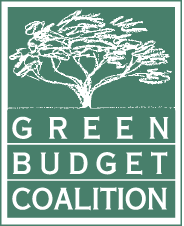Canada has introduced policies to end domestic subsidies and international public financing for fossil fuel projects. To build on this progress, Canada should publish a policy to end domestic public finance for fossil fuels, as it has committed to do most recently in Budget 2024. This policy is critical to supporting the energy transition, particularly considering that Export Development Canada and other Canadian crown corporations provided at least $7.6 billion to $13.5 billion annually to the fossil fuel sector over 2020-2022. A substantial portion of public finance in recent years has supported the Trans Mountain Pipeline project.
With a strong and transparent approach, Canada can become a global leader in shifting financial flows away from fossil fuels as a key lever to support the energy transition.
Recommendations:
1. Publish a policy to end domestic public financing for fossil fuels by fall 2024 [FIN, ECCC]
a. Introduce a strong policy to end public financial support for fossil fuels domestically, including the full scope of financial instruments, such as loans, equity, grants, guarantees, and insurance. The policy should cover financing for all fossil fuels across their entire life cycle, including support for decarbonization. It should also include a plan to phase out existing public finance and direct government investments. A recent report has a full list of recommendations for a strong policy.
b. Direct public financial institutions (PFIs) to increase transparency by publishing transaction-level data, including company, project name, description and location, amounts disbursed, instrument type, co- investors or syndicate members, any other activities or roles undertaken by the PFI, and any performance or impact expectations (e.g., environmental, social, governance, and any sustainable development goal alignment, full life-cycle emissions for projects or projected dollars per tonne of emissions reductions).
2. Ensure centralized and transparent reporting for all fossil fuel subsidies and public financing [FIN, ECCC, PMO, PCO, NRCan, ISED]
a. Publish the results of Canada’s long-overdue subsidies self-review immediately, including a full inventory of all federal fossil fuel tax and non-tax subsidies and supports (such as the 128 measures identified in the inefficient fossil fuel subsidies framework), and analysis and rationale for any deemed ‘efficient’. [FIN, ECCC]
b. Create a central mechanism for transparency, accountability, and enforcement of policies to ensure they are upheld across departments. The mechanism could include a central database of departmental reports on potential fossil fuel supports and any rationale for exemptions under current policies. An enforcement body should assess information and analysis reported and ensure full enforcement of all policy conditions. [FIN, ECCC]
c. Develop and publish guidelines for federal departments to implement the inefficient fossil fuel subsidies framework. These guidelines should advance a narrow interpretation of exemptions under the policy, ensuring no further support for ‘abated’ oil and gas production, including through carbon capture and storage. [FIN, NRCan, ISED, ECCC]
For related recommendations, please see also Subsidy reform: Aligning investments with halting and reversing biodiversity loss by 2030 and Sustainable finance: Aligning Canada’s financial system with climate and biodiversity commitments, elsewhere in this document.

